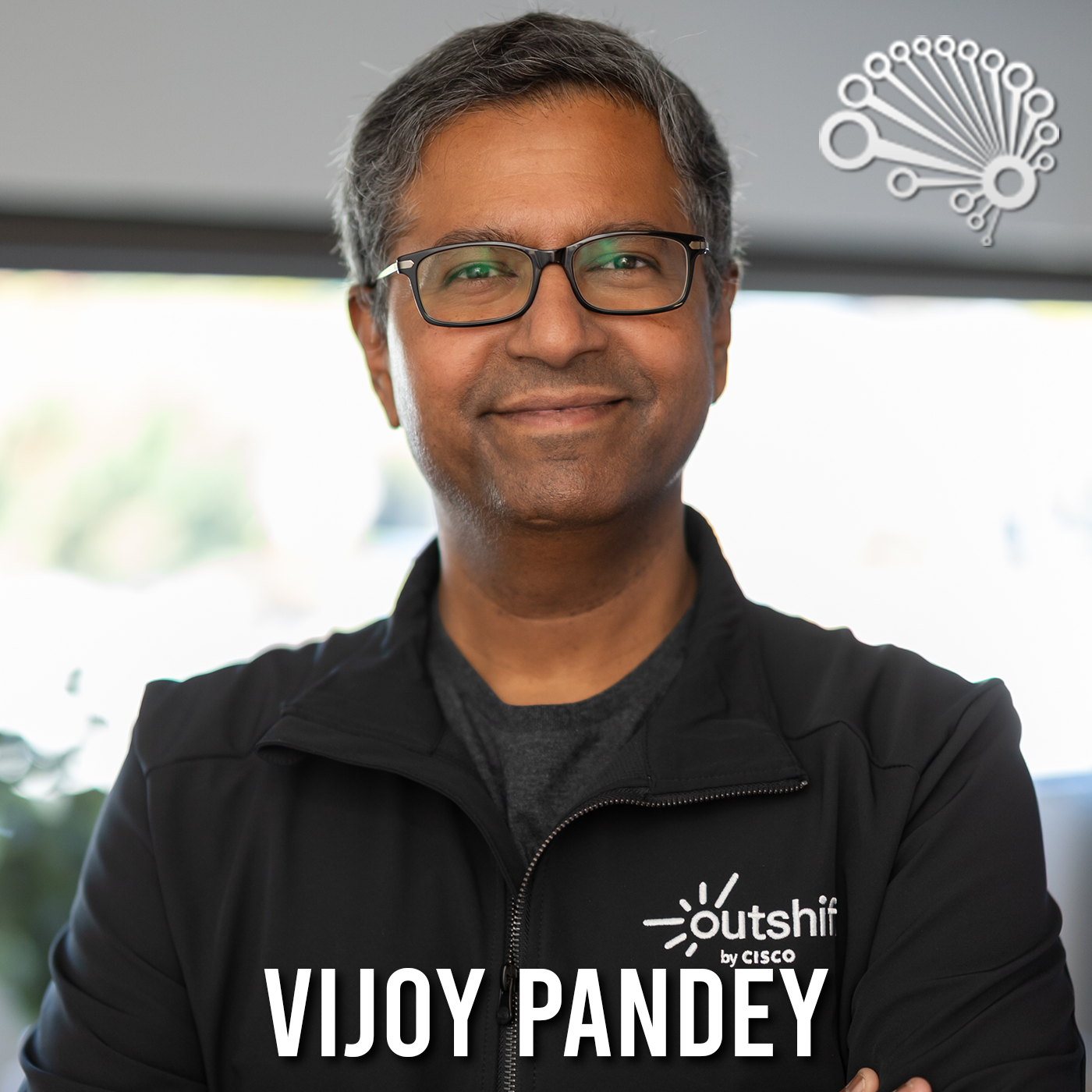Welcome back to the FiveMinuteFriday episode of the SuperDataScience Podcast!
This week I dive into an interesting phenomenon I’ve noticed.
CrossFit, as you’ve probably heard me discuss, is a popular form of exercise known as functional fitness. Its goal is to develop actual skills through fitness regimens. For years I thought I was excellent at CrossFit, I thought of myself as the most skilled in the class each time and if there were moments where someone did run faster than me or lift more weight than me, I would chalk it up to me having an off day.
After a while, I built my schedule around workouts so it became an integral part of my week rather than something I squeezed in. Once I started going over things more regularly and having more robust and regular data, I could realistically evaluate my progress and capabilities. As I honed this self-awareness, I came to realize how terrible I was at CrossFit, especially compared to people at half my weight. No longer a beginner, I could see I was bad. Today, I’m gradually improving at simple movements.
This has been a reoccurring pattern with me. As a beginner at various topics, I delude myself into thinking I know everything. And I’ve seen this in others, especially in data scientists who are initially given clean data sets and textbook problems to solve that can build a false sense of security. After a few years in the field, they can accurately perceive their abilities. As I detailed previously, learning never stops in a data science career. This is one of the aspects that makes a data science career exciting.
ITEMS MENTIONED IN THIS PODCAST:
DID YOU ENJOY THE PODCAST?
- Can you think of a time where you were sure you knew everything only to find with time and practice you didn’t know all that much at all?
- Download The Transcript
Podcast Transcript
(00:05):
This is Five-Minute Friday on how Only Beginners Know Everything
(00:19):
CrossFit is a popular fitness franchise in Western countries where members pay to show up and be shouted at as they are timed performing countless repetitions of heavy barbell lifts, pull-ups, tire flips and the like. The idea of functional fitness, which CrossFit is the leading brand within, is to develop a highly transferable set of physical skills across many domains — cardiovascular, strength, mobility, accuracy — so that you can excel in any real-world scenario you may encounter.
CrossFit is a popular fitness franchise in Western countries where members pay to show up and be shouted at as they are timed performing countless repetitions of heavy barbell lifts, pull-ups, tire flips and the like. The idea of functional fitness, which CrossFit is the leading brand within, is to develop a highly transferable set of physical skills across many domains — cardiovascular, strength, mobility, accuracy — so that you can excel in any real-world scenario you may encounter.
(00:48):
About a decade ago, I began attending CrossFit gyms and for about five years I genuinely believed that I was good at it. In my mind, I could outcompete anyone else in the class; I could lift heavier deadlifts, do more push-ups, run faster than the guy next to me. I remember really believing this. When the guy next to me would turn out to be able to lift a heavier weight, do way more push-ups, or run way faster, I’d chalk it up to me having a bad day or I’d make the excuse in my own mind that that particular workout that day wasn’t the one for me but I generally excel at this sport. As a beginner, I thought I knew everything about CrossFit and that I was great at it.
About a decade ago, I began attending CrossFit gyms and for about five years I genuinely believed that I was good at it. In my mind, I could outcompete anyone else in the class; I could lift heavier deadlifts, do more push-ups, run faster than the guy next to me. I remember really believing this. When the guy next to me would turn out to be able to lift a heavier weight, do way more push-ups, or run way faster, I’d chalk it up to me having a bad day or I’d make the excuse in my own mind that that particular workout that day wasn’t the one for me but I generally excel at this sport. As a beginner, I thought I knew everything about CrossFit and that I was great at it.
(01:28):
Four years ago, about six years after having started CrossFitting, for the first time I began attending classes with great regularity and consistency. It was finally no longer something I squeezed into my week, but something I was committed to, that I built my weekly calendar around so that I didn’t miss workouts.
Four years ago, about six years after having started CrossFitting, for the first time I began attending classes with great regularity and consistency. It was finally no longer something I squeezed into my week, but something I was committed to, that I built my weekly calendar around so that I didn’t miss workouts.
(01:43):
This was a humbling experience. No longer a complete beginner and getting more regular recordings of my performances, I could more realistically evaluate my capabilities relative to those around me. As I honed this self-awareness more and more, I began to see — and accept — how terrible I really was at CrossFit and always had been. I’m a big guy and I couldn’t deadlift anywhere near folks half my weight. I couldn’t string more than a couple of pull-ups together. And my running speed was middle of the pack at best. No longer a complete beginner, I could see that I was bad.
This was a humbling experience. No longer a complete beginner and getting more regular recordings of my performances, I could more realistically evaluate my capabilities relative to those around me. As I honed this self-awareness more and more, I began to see — and accept — how terrible I really was at CrossFit and always had been. I’m a big guy and I couldn’t deadlift anywhere near folks half my weight. I couldn’t string more than a couple of pull-ups together. And my running speed was middle of the pack at best. No longer a complete beginner, I could see that I was bad.
(02:20):
In the long run, this is a good thing. Through years of consistent practice, commitment, and lots of lifestyle improvements, I’m still pretty bad at CrossFit for the most part but I’m gradually, reliably improving at all of the simple movements and a handful of them I can now execute at a slightly above-average level.
In the long run, this is a good thing. Through years of consistent practice, commitment, and lots of lifestyle improvements, I’m still pretty bad at CrossFit for the most part but I’m gradually, reliably improving at all of the simple movements and a handful of them I can now execute at a slightly above-average level.
(02:40):
This has been a recurring pattern in complex pursuits that I’ve taken up over the years, not just CrossFit. It’s happened with meditation, with musical instruments, and with my career. In all of these, as a beginner, I somehow completely deluded myself into thinking I knew everything.
This has been a recurring pattern in complex pursuits that I’ve taken up over the years, not just CrossFit. It’s happened with meditation, with musical instruments, and with my career. In all of these, as a beginner, I somehow completely deluded myself into thinking I knew everything.
(02:58):
In data science careers, I see this “only beginners know everything” pattern time and again. Not with everyone, but I see it a lot. People who have worked through a few introductory data-science textbooks or are fresh out of a data-science bootcamp or out of an undergraduate degree in a quantitative discipline… Most of these folks have largely been provided with entirely clean datasets to work with so far. The problems they’ve been asked to solve by their textbook questions or their instructors have clear solutions and they build on the material they’ve formally studied in the preceding days or weeks. This can build a false sense of security.
In data science careers, I see this “only beginners know everything” pattern time and again. Not with everyone, but I see it a lot. People who have worked through a few introductory data-science textbooks or are fresh out of a data-science bootcamp or out of an undergraduate degree in a quantitative discipline… Most of these folks have largely been provided with entirely clean datasets to work with so far. The problems they’ve been asked to solve by their textbook questions or their instructors have clear solutions and they build on the material they’ve formally studied in the preceding days or weeks. This can build a false sense of security.
(03:32):
These beginner data scientists — some of them — are sure they know everything. But, guess what? It’s only beginner data scientists who know everything. It might be years before they start to have enough of an understanding of the field that they can start to perceive their level of ability more accurately relative to their peers. It is then that they start to realize that the field of data science is so vast that they don’t really know much at all and they never will. There’s an adage for this so overused that it’s a cliché: The more you know, the more you realize you don’t know.
These beginner data scientists — some of them — are sure they know everything. But, guess what? It’s only beginner data scientists who know everything. It might be years before they start to have enough of an understanding of the field that they can start to perceive their level of ability more accurately relative to their peers. It is then that they start to realize that the field of data science is so vast that they don’t really know much at all and they never will. There’s an adage for this so overused that it’s a cliché: The more you know, the more you realize you don’t know.
(04:05):
Indeed, as I detailed in Episode 472, in a data science career, the learning never stops. Even the simplest, most frequently used techniques and programming languages have details underpinning their applicability that they could fill hundreds of doctoral theses — with only more and more questions emerging from these intimate investigations. This, again as I said in Episode 472, is one of the aspects that makes a data science career so endlessly exciting. For the curious minded, there’s much more than a lifetime of deeply fascinating aspects to explore and each year these multiply — across journal articles, datasets, sensors, software libraries, and commercial applications.
Indeed, as I detailed in Episode 472, in a data science career, the learning never stops. Even the simplest, most frequently used techniques and programming languages have details underpinning their applicability that they could fill hundreds of doctoral theses — with only more and more questions emerging from these intimate investigations. This, again as I said in Episode 472, is one of the aspects that makes a data science career so endlessly exciting. For the curious minded, there’s much more than a lifetime of deeply fascinating aspects to explore and each year these multiply — across journal articles, datasets, sensors, software libraries, and commercial applications.
(04:43):
I suppose my take-away point from this episode is that if you’re early in your data science career — or your journey into any challenging pursuit — and you feel like you know everything, well, that may be because you’re a beginner.
I suppose my take-away point from this episode is that if you’re early in your data science career — or your journey into any challenging pursuit — and you feel like you know everything, well, that may be because you’re a beginner.
(04:57):
Now, all of that said, many folks at any stage of their career feel the opposite of what I’ve detailed in this episode: They feel like an imposter even though they are in fact well-suited to the data science challenges they’re being presented. I’ll dig into this polar opposite — but nevertheless common — situation, called Imposter Syndrome, in a future episode of the show.
Now, all of that said, many folks at any stage of their career feel the opposite of what I’ve detailed in this episode: They feel like an imposter even though they are in fact well-suited to the data science challenges they’re being presented. I’ll dig into this polar opposite — but nevertheless common — situation, called Imposter Syndrome, in a future episode of the show.
(05:19):
Ok, that’s it for now. For next week’s Five-Minute Friday, it’ll be episode 500 of the SuperDataScience show and I have something extra special in store for you: a potentially life-altering — if not at least day-altering experience — that you’ll be able to undertake just by laying down and listening. All right, in the meantime, keep on rockin’ it out there, folks, and catch you on another round of SuperDataScience very soon.
Ok, that’s it for now. For next week’s Five-Minute Friday, it’ll be episode 500 of the SuperDataScience show and I have something extra special in store for you: a potentially life-altering — if not at least day-altering experience — that you’ll be able to undertake just by laying down and listening. All right, in the meantime, keep on rockin’ it out there, folks, and catch you on another round of SuperDataScience very soon.



